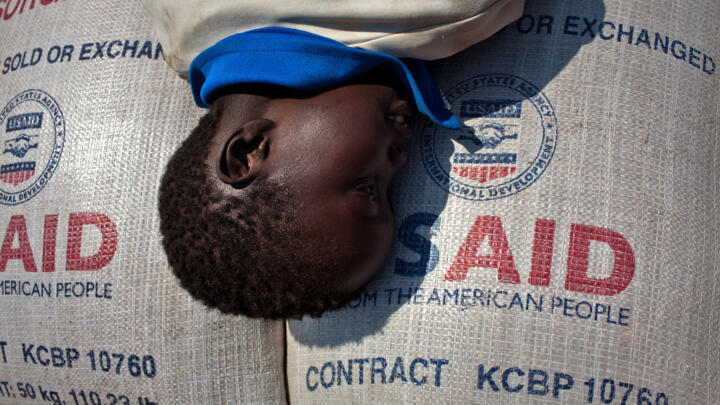The recent executive-directed dismantling of the U.S. Agency for International Development (USAID), driven by former President Trump’s “America First” strategy, is projected to cause approximately 14 million additional deaths by 2030, reversing decades of global health progress.
Scale and Scope of Cuts
- Agency Freeze: In January 2025, nearly 90% of USAID programs were suspended, excluding emergency food and military aid culminating in the agency’s absorption into the State Department.
- Mass Layoff: Staff levels dropped from over 10,000 employees to fewer than 300, severely disrupting ongoing international projects.
- Foreign Aid Budget: Reduced to roughly USD 17 billion, these cuts represent the largest rollback since USAID’s launch in 1961.
Humanitarian and Health Impacts
- Lives at Stake: A Lancet study estimates an additional 14 million deaths by 2030 including 4.5 million children under five due to collapsed programs addressing HIV, malaria, TB, maternal and child health.
- Lives Saved: Over the past two decades, USAID is credited with saving approximately 91 million lives, including 30 million children under five, primarily through interventions in global health programs.
- Disease Burden Reversal: Child and maternal mortality, HIV/AIDS, malaria, tuberculosis, and neglected tropical diseases are at risk of resurging.
Global Consequences
- Countries Affected: Sub-Saharan Africa, South and Southeast Asia, and parts of Latin America are already experiencing gaps in essential health services.
- Comparative Impact: Experts warn that the mortality impact rivals that of global pandemics or regional conflicts due to the depth of service interruption.
- Aid Withdrawal Domino Effect: Major donors like the UK, Germany, and France are following suit, prolonging global aid reduction trends and threatening Sustainable Development Goals.
Criticism & Policy Debate
- Bipartisan Concern: Former U.S. Presidents, including Obama and Bush, denounced the cuts as a “tragedy” that undermines America’s humanitarian leadership.
- Economic Rationale Challenged: Despite representing less than 1% of the federal budget, aid-funded programs yielded significant health and development returns, far outweighing their cost.
- Global Security Risks: Weakening global healthcare systems has implications for disease surveillance, climate-related resilience, and geopolitical influence particularly amid rising challenges from rival nations.
Pathways Forward
| Action Needed | Description |
|---|---|
| Restore Funding | Re-support programs like PEPFAR, PMI, and maternal-child health to reverse mortality increases |
| Strengthen Systems | Rebuild supply chains, healthcare access, personnel, and surveillance capacity |
| Re-evaluate Strategy | Reinstate USAID with transparent oversight to support global leadership and partnerships |
| Advocate Globally | Encourage donor coordination and progressive aid funding to meet SDGs and avoid humanitarian collapse |
Final Takeaway
The dismantling of USAID under the “America First” policy threatens a devastating global health setback. With nearly 14 million excess deaths expected by 2030, the implications transcend humanitarian harm they pose a threat to diplomatic influence, global security, and the future of multilateral cooperation. Restoring USAID isn’t just a moral imperative it is a strategic necessity.



Comments (0)
No comments yet. Be the first to comment!
Leave a Comment